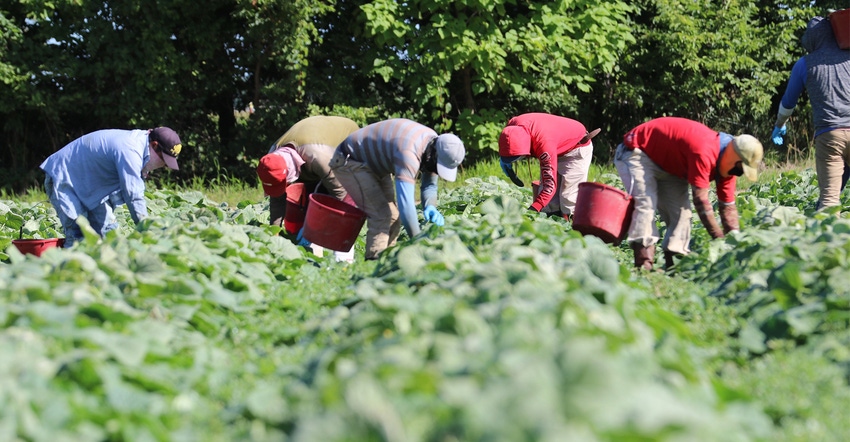
Michigan farm employers are not backing down, even though the lawsuit they filed to strike down an emergency order mandating COVID-19 testing requirements was denied Aug. 14 by U.S. District Judge Paul Maloney.
Farmworkers and their employers filed an appeal Aug. 25 seeking to overturn that decision, claiming the Michigan Department of Health and Human Services' COVID-19 testing mandate of farmworkers on operations with 20 or more employees is discriminatory against Latino farmworkers.
“We are appealing the district court’s decision to the 6th Circuit, where we will ask for an ‘injunction pending appeal,’ to stay MDHHS’ emergency order pending a full briefing on why the MDHHS emergency order unconstitutionally discriminates against Latinos,” says Ronald G. DeWaard of Varnum LLP, the law firm handling the case.
Related: Complete coronavirus coverage
"The court and the parties generally agree the emergency order affects primarily Latinos, as Latino workers predominate the agricultural labor market and also migrant housing camps," Maloney wrote. “But statements by MDHHS Director Robert Gordon cited by the plaintiffs simply acknowledge this fact. This fact would tend to demonstrate a disparate impact, but it does not require the inference of discriminatory intent."
The state’s Aug. 3 emergency order requires employers of migrant or seasonal workers with more than 20 employees on-site at a time to test all workers by Aug. 24. Employers must conduct a one-time baseline testing on all workers, then test all new employees before any in-person work, and finally test any worker with symptoms or exposure.
Migrant housing camps also must conduct a baseline test of all residents age 18 and older, test all new residents within 48 hours of arrival and quarantine new arrivals for 14 days.
Migrant Legal Aid, a nonprofit organization that has been advocating for migrant workers’ rights since 1973, and the Michigan Farm Bureau (MFB), the state’s largest general farm organization, both support the legal challenge of the emergency order as a violation of the Latino community’s civil rights.
Worker safety
MDHHS Director Robert Gordon applauded the court’s denial, saying the required testing serves to protect farm and food processing workers from COVID-19.
There are an estimated 75,000 Latino farmworkers.
“The department’s goal is to save lives during a pandemic that has killed more than 6,300 people in Michigan,” says Gordon, who noted 21 outbreaks of COVID-19 in food processing plants and migrant worker camps.
Latinos account for 8% of all Michigan COVID-19 cases and 2% of the state’s deaths. About 5.3% of Michigan residents are Latino, per U.S. Census data.
Allison Eicher, Michigan Farm Bureau assistant general counsel, says the appeal is still relevant and necessary, noting the MDHHS emergency order and testing mandate do not have an expiration date.
“So, farmworkers arriving later this month or into September for Michigan’s fall apple harvest, for example, would still be required to comply with the MDHHS testing mandate or face not being able to work until they can provide test results,” Eicher says.
MFB manager of government relations Rob Anderson says, “The MDHHS emergency order has the potential to completely uproot the lives of many Latino agricultural workers, and it directly threatens their livelihoods, their housing arrangements, and leaves them in fear about how they’ll provide for their families."
Kevin Robson, Michigan Blueberry Commission executive director, says that predictions of farmworkers walking off the job because of the MDHHS testing mandate are becoming a reality.
“I have already received phone calls from growers — one reporting their entire harvest crew left the day the judge’s ruling was announced, and another one that had 26 farmworkers leave the same day,” Robson says.
Read more about:
Covid 19About the Author(s)
You May Also Like






